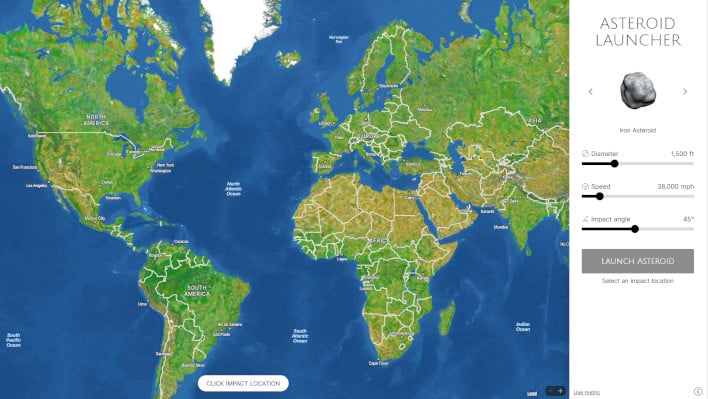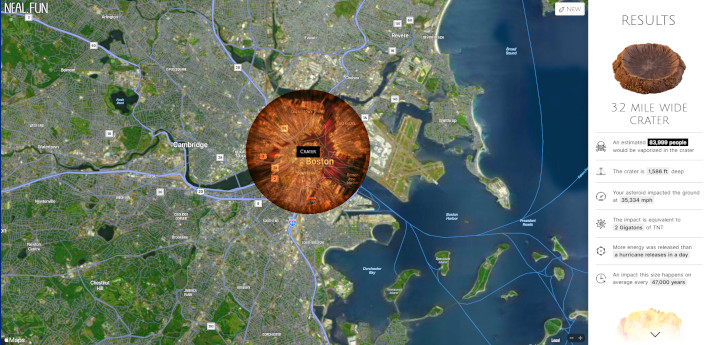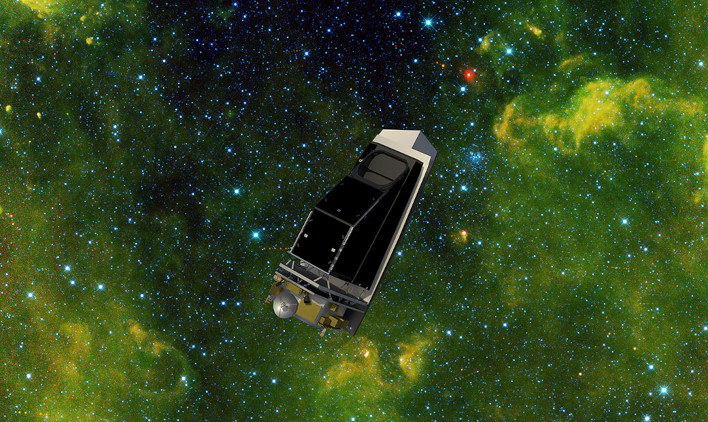Asteroid Launcher Lets You Simulate How Screwed We Are If A Big Rock Slams Into Earth

An Armageddon-type asteroid event, such as the Chixculub asteroid impact 66 million years ago believed to have annihilated dinosaurs, is more than likely in the back of most people's minds. While it is highly unlikely that any currently detected asteroids are close enough to impact Earth, it does not keep many from trying to imagine what kind of cataclysmic events would transpire if a large asteroid did impact Earth. Now, anyone can see what kind of damage would occur if an asteroid did indeed impact our planet.
Asteroid Launcher simulator is simple to use. The simulator utilizes a world map for anyone to choose a location for the asteroid to impact, along with what type of asteroid, its diameter, speed, and impact angle. Once all of the information is chosen, all that is left is to click on "Launch Asteroid."

A few other horrific details that are shared after impact include the size of the fireball, how many people would be vaporized in the fireball, and how many people would receive 3rd-degree burns.
For anyone that is worried about an asteroid sneaking through the current line of defense, NASA recently began construction on its next-generation asteroid hunter. Neo Surveyor will be the first purpose-built space telescope that will advance NASA's planetary defense efforts by locating and tracking hazardous near-Earth objects.

In the meantime, users can use Neal Agarwal's addictive creation, Asteroid Launcher, to see what type of calamitous events might occur if an asteroid does impact Earth.

